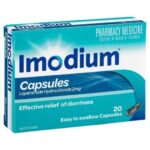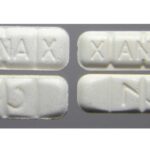How Long Can You Take Medicine After The Expiration Date?

What is an expiration date?
The expiration date refers to the final day that the manufacturer of a medication or product guarantees the full potency and safety of a medication. Drug expiration dates exist on most medication labels, including prescription, over-the-counter (OTC) and dietary (herbal) supplements.
Proper storage of medications may help to extend their potency. The bathroom and medicine cabinet are not ideal places to store medications due to heat and humidity. Similarly, medications should not be left in a hot car. Medications remain most stable in dry, cool spaces away from light. Keep the prescription bottle caps tightly closed and always keep medications out of reach of children and pets.
How did it start?
In 1979, the U.S. Food and Drug Administration began requiring an expiration date on prescription and over-the counter medicines. The expiration date is a critical part of deciding if the product is safe to use and will work as intended.
The expiration date can be found printed on the label or stamped onto the bottle or carton, sometimes following “EXP.” It is important to know and stick to the expiration date on your medicine. Using expired medical products is risky and possibly harmful to your health.
How are medication expiry dates set?
The expiration date of a drug is estimated using stability testing under good manufacturing practices as determined by the Food and Drug Administration (FDA). Drug products marketed in the US typically have an expiration date that extends from 12 to 60 months from the time of manufacturer. Once the original container is opened, either by the patient or the health care provider who will dispense the drug, that original expiration date on the container can no longer be relied upon. However, the actual shelf life of the drug may be much longer as stability studies have shown.
How Long Can You Take Medicine After The Expiration Date
According to the FDA, after the expiry date, medicines may not be safe or as effective. You should not take medicines after their expiry date. Certain expired medications are at risk of bacterial growth and sub-potent antibiotics can fail to treat infections, leading to more serious illnesses and antibiotic resistance. In 1963, a report was published that tied degraded tetracycline use with a form of renal tubular (kidney) damage known as “Fanconi Syndrome”; however, that formulation of tetracycline is no longer marketed in the U.S., and many medical experts question the results of this case report.
Once the expiration date has passed, there is no guarantee that the medicine will be safe and effective. If your medicine has expired, do not use it.
According to the DEA, many people don’t know how to properly clean out their medicine cabinets. Failing to safely dispose of old medications, especially opioids, all too often leads to dangerous drugs ending up in the wrong hands. The CDC reports that 50,000 young children end up in emergency rooms each year because they got into medicines while an adult wasn’t looking.
There have been some controversial studies which has opened a debate about the safety and effectiveness of medicines after expiry dates. One of such studies was a 1985 military study which reported that some medications were still in good condition nearly 3 years past their expiration dates, but this study also discovered that others were not safe for human consumption.
Expired medicines are not just a risk to the person they were prescribed for, they can also injure children and pets if taken by mistake. For all these reasons, proper disposal of unneeded medicines is essential.
How to dispose expired meds
First, read the medicine’s label and follow any specific disposal instructions that may be included. A drug take-back program, if available, is the preferred way to dispose of expired, unwanted, or unused medicine. For example, the National Prescription Drug Take-Back Day, coordinated by the DEA, addresses a vital public safety and public health issue by focusing attention on this important issue and reminding everyone to get rid of unneeded and outdated medicines. Through this important program, many tons of unneeded and out-date drugs have been removed for proper disposal.
When drug take-back programs aren’t available, federal guidelines recommend throwing the medicines away in the household trash after mixing them with a substance like dirt or kitty litter and then sealing the mixture in a container. However, certain medicines are specifically recommended for flushing down a toilet or sink because they could be especially harmful, even fatal, to a child, pet, or anyone else if taken accidentally.





